Want to know more about the Best Commerce Schools In the US and make an informed decision? Here is a good place to start.
Navigating the vast landscape of commerce schools in the US can be a daunting task for aspiring business professionals. With numerous factors to consider, such as reputation, curriculum, and job prospects, identifying the perfect fit becomes a challenge.
This blog post aims to simplify your search by presenting a comprehensive analysis of the nation’s top graduate and undergraduate business schools. It will empower you to confidently make an informed decision about your future educational endeavors.
Please note that schools are selected based on our criteria (at the end of the article), ranked by the latest acceptance rate.
Table of Contents
#25. University of Wisconsin Madison
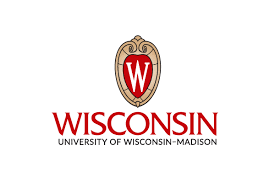

- Acceptance rate: 60%
- Average entry score: 1300-1480 SAT or 28-32 ACT
- Student-to-faculty ratio: 18 to 1
- Estimated cost of attendance (tuition and fees): $27,484-$55,372
- Average earning potential for graduates: $108,000 (College Simply)
At UW-Madison, business programs are designed to develop and nurture future business leaders. These programs offer degrees at the undergraduate, graduate, and Ph.D. levels, with specializations including finance, marketing, and management.
Undergraduate and graduate students receive extensive career support, including access to workshops, internships, networking events, and dedicated advisors.
Graduates benefit from strong relationships with top-tier companies, resulting in abundant opportunities. With a vibrant alumni network, UW-Madison’s commerce programs prepare students for fulfilling and successful careers in the fast-paced world of commerce.
Source: UW-Madison
#24. University of Washington
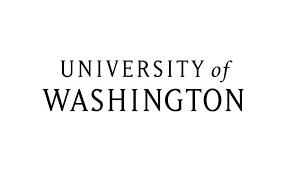

- Acceptance rate: 54%
- Average entry score: 1220-1470 SAT or 29-34 ACT
- Student-to-faculty ratio: 9 to 1
- Estimated cost of attendance (tuition and fees): $30,640-$58,470
- Average earning potential for graduates: $120,800 (College Simply)
The commerce programs at the University of Washington are designed to prepare students for successful careers in business. Graduates of these programs are equipped with the skills and knowledge necessary to excel in a wide range of roles within various industries.
The end product of these programs is a well-rounded and highly skilled graduate who is ready to make a meaningful contribution to the workforce. Students can choose from a variety of specializations, including accounting, finance, and marketing, to tailor their education to their unique career goals.
Source: Foster School of Business
#23. University of Maryland College Park
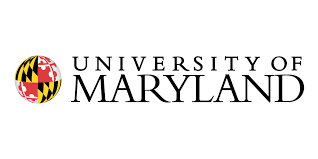

- Acceptance rate: 36%
- Average entry score: 1370-1510 SAT or 31-34 ACT
- Student-to-faculty ratio: 18 to 1
- Estimated cost of attendance (tuition and fees): $93,562
- Average earning potential for graduates: $97,800 (College Simply)
The University of Maryland College Park offers a variety of commerce programs that prepare students for successful careers in business. These programs provide students with specialized knowledge and skills in areas such as accounting, finance, marketing, and supply chain management.
Through hands-on learning experiences, internships, and networking opportunities, students gain practical skills and real-world experience that prepare them for the workforce.
The programs also offer access to a vast network of alumni and industry connections, providing students with valuable resources and support throughout their careers.
Source: Maryland Smith
#22. University of Texas at Austin
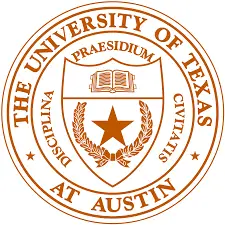

- Acceptance rate: 34%
- Average entry score: 1384 SAT or 31 ACT
- Student-to-faculty ratio: 18 to 1
- Estimated cost of attendance (tuition and fees): $52,270
- Average earning potential for graduates: $127,200 (College Simply)
The University of Texas at Austin offers a range of commerce programs, including undergraduate, graduate, and executive education options.
Plus, the learning environment emphasizes experiential learning and collaboration, with opportunities for internships, case competitions, and community engagement.
Students benefit from a diverse and accomplished faculty, as well as access to cutting-edge resources and technology. In addition, the university’s location in the thriving city of Austin provides ample opportunities for networking and professional development.
Source: McCombs School of Business
Similar articles like this:
#21. Cornell University
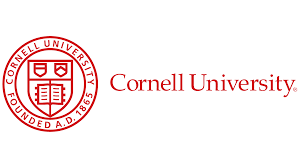

- Acceptance rate: 33%
- Average entry score: 1450-1560 SAT or 33-35 ACT
- Student-to-faculty ratio: 9 to 1
- Estimated cost of attendance (tuition and fees): $164,442
- Average earning potential for graduates: $79,900 (College Simply)
Cornell University’s commerce programs equip students with crucial skills for thriving in today’s competitive business landscape. The curriculum emphasizes entrepreneurship, leadership, and analytics, fostering expertise in finance, marketing, and operations.
Graduates emerge as well-rounded professionals with strong problem-solving and communication abilities, prepared to excel in diverse sectors such as technology, retail, consulting, and finance.
Cornell’s strong industry connections offer students valuable networking opportunities and a robust foundation for career success.
Source: Cornell SC Johnson College of Business
#20. Emory University
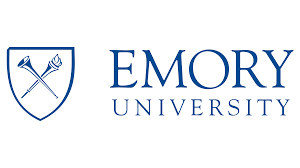

- Acceptance rate: 31%
- Average entry score: 1420-1540 SAT or 32-34 ACT
- Student-to-faculty ratio: 5 to 1
- Estimated cost of attendance (tuition and fees): $138,797
- Average earning potential for graduates: $127,100 (College Simply)
Emory University’s commerce programs stand out for their ability to cultivate successful graduates by providing a robust academic experience, distinguished faculty, and unparalleled networking opportunities.
Students benefit from experiential learning opportunities, global exposure, and interdisciplinary collaborations.
Emory’s prominent alumni network and dedicated career services further bolster post-graduation success. This comprehensive approach equips students with the essential skills, knowledge, and confidence to excel in the competitive world of commerce.
Source: Goizueta Business School
#19. Carnegie Mellon University
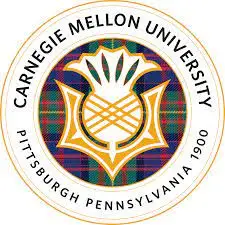

- Acceptance rate: 28%
- Average entry score: 1480-1560 SAT or 33-35 ACT
- Student-to-faculty ratio: 10 to 1
- Estimated cost of attendance (tuition and fees): $67,822-$80,540
- Average earning potential for graduates: $127,600 (College Simply)
Carnegie Mellon University’s commerce programs are highly sought after due to their focus on practical, real-world experiences.
Students gain hands-on experience through internships, partnerships, and networking opportunities with top companies. The programs are tailored to prepare students for a career in business, with a strong emphasis on technology and innovation.
Graduates have a high success rate in finding employment in their field and are well-equipped with the skills and knowledge needed to succeed in today’s fast-paced business world.
Source: Tepper School of Business
#18. University of Michigan Ann Arbor
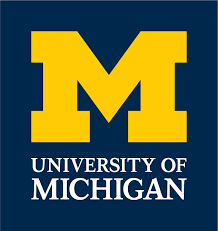

- Acceptance rate: 27%
- Average entry score: 1360-1530 SAT or 31-34 ACT
- Student-to-faculty ratio: 15 to 1
- Estimated cost of attendance (tuition and fees): $168,500-$173,500
- Average earning potential for graduates: $76,900 (College Simply)
Students choose the University of Michigan for commerce-related programs due to its exceptional faculty, cutting-edge resources, and strong industry connections.
The Ross School of Business offers a robust curriculum, state-of-the-art facilities, and real-world experiences that foster innovation and entrepreneurship.
Graduates are highly sought-after, benefiting from the university’s vast alumni network and impressive reputation, ensuring a bright future in the competitive world of commerce.
Source: Michigan Ross
Similar articles like this:
- Best Schools For Geography Degrees
- 25 Best Business Administration Schools In The US
- Best Schools For Forensic Science
#17. University of Virginia


- Acceptance rate: 26%
- Average entry score: 1320-1510 SAT or 30-34 ACT
- Student-to-faculty ratio: 15 to 1
- Estimated cost of attendance (tuition and fees): $101,197-$105,129
- Average earning potential for graduates: $107,600 (College Simply)
The McIntire School of Commerce offers both undergraduate and graduate programs that provide students with a comprehensive business education.
Their curriculum emphasizes critical thinking, problem-solving, and ethical decision-making. Students have access to world-renowned faculty, innovative research opportunities, and a wide range of experiential learning opportunities.
McIntire graduates are highly sought after by top employers in a variety of industries, demonstrating the quality of education and preparation provided by the program.
Source: UVA McINTIRE
#16. Duke University
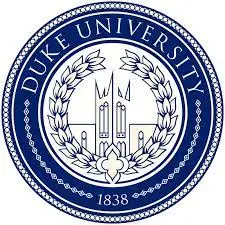

- Acceptance rate: 25%
- Average entry score: 1480-1570 SAT or 33-35 ACT
- Student-to-faculty ratio: 8 to 1
- Estimated cost of attendance (tuition and fees): $100,269
- Average earning potential for graduates: $89,800 (College Simply)
Commerce graduates from Duke University thrive in their careers due to the institution’s esteemed status, comprehensive academic program, and focus on practical business exposure.
These factors result in highly skilled, critical-thinking graduates with a solid foundation in business principles. Furthermore, Duke’s extensive alumni network and exceptional career services provide valuable connections and resources, increasing job opportunities and success rates.
Thus, Duke commerce graduates are well-prepared to tackle the competitive business world and achieve remarkable accomplishments.
Source: Duke University
#15. University of Chicago
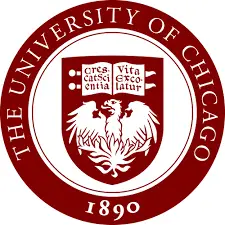

- Acceptance rate: 24%
- Average entry score: 1510-1580 SAT or 33-35 ACT
- Student-to-faculty ratio: 5 to 1
- Estimated cost of attendance (tuition and fees): $115,062
- Average earning potential for graduates: $83,000 (College Simply)
The University of Chicago offers a range of commerce programs that prepare students for a variety of career paths. Graduates of the programs have gone on to work in fields such as finance, consulting, and entrepreneurship.
The university’s Booth School of Business is highly regarded and has been ranked among the top business schools in the world. Students have access to a strong alumni network and career services that help them secure internships and jobs after graduation.
Source: Chicago Booth
#14. Yale University


- Acceptance rate: 23%
- Average entry score: 33-35 ACT
- Student-to-faculty ratio: 6 to 1
- Estimated cost of attendance (tuition and fees): $108,780
- Average earning potential for graduates: $81,400 (College Simply)
Yale University’s business program equips students with exceptional business acumen and leadership abilities.
Graduates emerge as innovative, ethical leaders in their respective fields, primed to excel in global enterprises.
Yale’s emphasis on interdisciplinary learning, coupled with its extensive network, ensures an unparalleled education that fosters collaboration, critical thinking, and adaptability, empowering students to drive positive change and economic growth worldwide.
Source: Yale University
Similar articles like this:
- 25 Best Schools For Insurance Degrees In The US
- Best Schools For International Relations
- 25 Best Digital Marketing Schools In The US
#13. University of North Carolina Chapel Hill
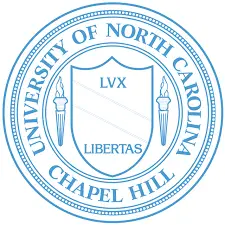

- Acceptance rate: 20%
- Average entry score: 1310-1500 SAT or 29-33 ACT
- Student-to-faculty ratio: 13 to 1
- Estimated cost of attendance (tuition and fees): $24,546-$51,725
- Average earning potential for graduates: $71,800 (College Simply)
The commerce programs at UNC emphasize practical business knowledge, hands-on experience, and networking opportunities.
Students can choose from various concentrations, such as finance, marketing, and entrepreneurship. With strong connections to top-tier companies, UNC boasts an impressive job placement rate.
Graduates often secure positions in investment banking, consulting, marketing, and management, propelling their careers forward with the skills and expertise gained from their time at this prestigious institution.
Source: UNC Kenan-Flagler
#12. Northwestern University
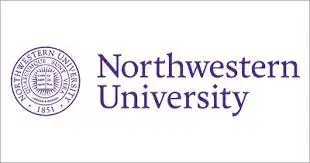

- Acceptance rate: 20%
- Average entry score: 1440-1550 SAT or 33-35 ACT
- Student-to-faculty ratio: 6 to 1
- Estimated cost of attendance (tuition and fees): $117,259-$144,502
- Average earning potential for graduates: $155,400 (College Simply)
The commerce programs at Northwestern University distinguish themselves through an innovative curriculum, esteemed professors, and robust ties to the business world.
These programs emphasize experiential learning, providing students with real-world opportunities to apply their knowledge. Located near Chicago’s business hub, students benefit from a vast professional network, internships, and job placements.
Additionally, Northwestern’s global reputation and diverse student body create an enriching environment that fosters innovation and entrepreneurial thinking, preparing graduates to thrive in the competitive world of commerce.
Source: Weinberg College of Arts & Science
What’s it like to study at Northwestern University?
#11. Columbia University
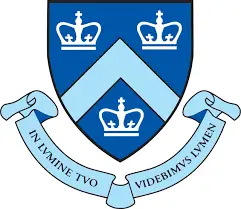

- Acceptance rate: 18%
- Average entry score: 1440-1570 SAT or 34-35 ACT
- Student-to-faculty ratio: 6 to 1
- Estimated cost of attendance (tuition and fees): $77,376
- Average earning potential for graduates: $167,700 (College Simply)
Columbia University offers various commerce programs, including undergraduate and graduate programs like Business Management and MBA.
These programs provide students with the necessary skills and knowledge to succeed in the business world. Students benefit from the program’s rigorous curriculum, experienced faculty, and access to a vast network of alumni and industry leaders.
Additionally, students have numerous opportunities to gain practical experience through internships and hands-on projects, preparing them for successful careers in the business world.
Source: Columbia Business School
#10. Massachusetts Institute of Technology


- Acceptance rate: 15%
- Average entry score: 1570 SAT or 36 ACT
- Student-to-faculty ratio: 3 to 1
- Estimated cost of attendance (tuition and fees): $119,995
- Average earning potential for graduates: $88,700 (College Simply)
MIT offers a range of commerce programs, including a Bachelor’s in Management, a Master’s in Business Analytics, and an MBA. Students appreciate the interdisciplinary nature of these programs, which combine business with STEM fields like engineering and computer science.
They also appreciate the program’s focus on real-world application, with opportunities for internships and consulting projects with real companies.
Moreover, MIT’s focus on fostering innovation and entrepreneurship equips students to excel as leaders in their respective sectors, a quality that is greatly cherished by alumni.
Source: MIT Sloan
What’s it like to study at the Massachusetts Institute of Technology?
Similar articles like this:
#9. University of Southern California
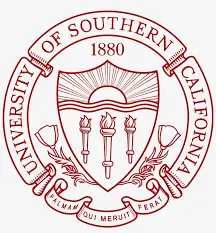

- Acceptance rate: 13%
- Average entry score: 1320-1520 SAT or 30-34 ACT
- Student-to-faculty ratio: 9 to 1
- Estimated cost of attendance (tuition and fees): $60,446
- Average earning potential for graduates: $85,500 (College Simply)
At USC, commerce programs, such as the distinguished Marshall School of Business, cultivate versatile graduates through a blend of cutting-edge theory, hands-on experience, and global exposure.
Students engage in interactive, real-world projects, fostering innovation, leadership, and critical thinking.
USC’s extensive alumni network and thriving industry partnerships provide invaluable opportunities for internships and post-graduate careers, ensuring a seamless transition into the competitive world of business.
Source: USC Marshall School of Business
What’s it like to study at the University of Southern California?
#8. University of California Berkeley


- Acceptance rate: 13%
- Average entry score: 1415 SAT
- Student-to-faculty ratio: 20 to 1
- Estimated cost of attendance (tuition and fees): $107,168-$116,178
- Average earning potential for graduates: $76,600 (College Simply)
The Haas School of Business at the University of California, Berkeley, provides a comprehensive education to its students in various fields of business, including finance, management, and marketing.
Their curriculum is designed to develop students’ analytical, communication, and leadership skills, preparing them to become responsible and ethical business leaders.
With a strong emphasis on entrepreneurship and innovation, the Haas School of Business also equips its graduates with the tools and knowledge needed to navigate the ever-changing business landscape.
Source: Haas School of Business
#7. Harvard University


- Acceptance rate: 12%
- Average entry score: 1460-1580 SAT or 33-34 ACT
- Student-to-faculty ratio: 7 to 1
- Estimated cost of attendance (tuition and fees): $76,000
- Average earning potential for graduates: $91,600 (College Simply)
Harvard Business School (HBS) transforms commerce students into successful professionals by providing a rigorous, world-class curriculum that emphasizes real-world case studies and experiential learning.
Through a diverse and accomplished faculty, HBS fosters an environment of collaboration, innovation, and networking opportunities.
Students are exposed to global business perspectives, social responsibility, and leadership development, ensuring they graduate as well-rounded, highly skilled individuals ready to make an impact in the business world.
Source: Harvard Business School
#6. Johns Hopkins University
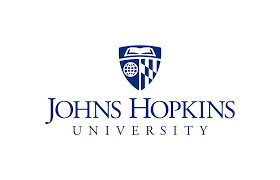

- Acceptance rate: 11%
- Average entry score: 1510-1570 SAT or 34-35 ACT
- Student-to-faculty ratio: 7 to 1
- Estimated cost of attendance (tuition and fees): $78,657
- Average earning potential for graduates: $92,700 (College Simply)
Johns Hopkins University’s Carey Business School offers top-tier commerce programs, emphasizing ethical leadership and innovation.
Students choose from a range of degrees, including a full-time MBA, flexible part-time MBA, and specialized Master’s programs in finance, marketing, and business analytics.
With a cutting-edge curriculum and world-renowned faculty, graduates are well-equipped to excel in today’s dynamic global business landscape, fostering meaningful connections and driving positive change.
Source: Johns Hopkins Carey Business School
Similar articles like this:
- 25 Best Schools For Economics In The US
- 25 Best Schools For Biology In The US
- 25 Best Schools For English Language and Literature in the US
#5. University of California Los Angeles
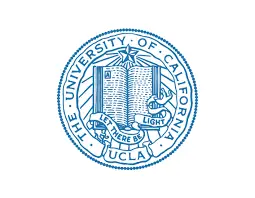

- Acceptance rate: 11%
- Average entry score: 1290-1520 SAT
- Student-to-faculty ratio: 18 to 1
- Estimated cost of attendance (tuition and fees): $16,847-$31,949
- Average earning potential for graduates: $135,200 (College Simply)
UCLA’s commerce programs, offered through the Anderson School of Management, feature a world-class faculty with expertise in areas such as finance, accounting, marketing, and entrepreneurship.
Many of the faculty members are renowned scholars and industry leaders who bring real-world experience to the classroom. Students have the opportunity to work closely with these faculty members, engaging in collaborative research projects, internships, and case studies.
The faculty’s commitment to providing a rigorous and relevant education ensures that graduates are well-prepared to succeed in the competitive world of commerce.
Source: UCLA
#4. University of Pennsylvania


- Acceptance rate: 9%
- Average entry score: 1460-1570 SAT or 33-35 ACT
- Student-to-faculty ratio: 6 to 1
- Estimated cost of attendance (tuition and fees): $84,874
- Average earning potential for graduates: $134,000 (College Simply)
The commerce programs at the University of Pennsylvania, including the prestigious Wharton School, are known for their exceptional quality.
These programs offer a rigorous curriculum that challenges students to think critically and creatively while providing them with the practical skills necessary to succeed in today’s global business environment.
The faculty of these programs is comprised of leading experts in their respective fields who are committed to providing their students with the best possible education.
Graduates of these programs are highly sought after by top employers and are well-prepared to make significant contributions to the business world.
Source: The Wharton School
What’s it like to study at the University of Pennsylvania?
#3. New York University
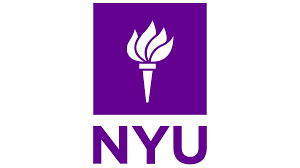

- Acceptance rate: 7%
- Average entry score: 1455 SAT or 33 ACT
- Student-to-faculty ratio: 2 to 1
- Estimated cost of attendance (tuition and fees): $63,876-$82,176
- Average earning potential for graduates: $77,100 (College Simply)
Dive into the world of commerce at New York University’s renowned Stern School of Business, where a variety of programs cater to students eager to thrive in the global business landscape.
Students gain hands-on experience and rigorous training in finance, accounting, marketing, and more from undergraduate to doctoral programs.
With access to top-tier faculty, industry-leading resources, and a diverse community of scholars, NYU Stern is a premier destination for those seeking a career in commerce.
Source: NYU Stern
What’s it like to study at New York University?
#2. Dartmouth College
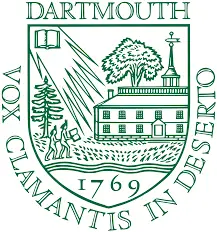

- Acceptance rate: 6%
- Average entry score: 1449-1560 SAT or 32-35 ACT
- Student-to-faculty ratio: 7 to 1
- Estimated cost of attendance (tuition and fees): $81,662
- Average earning potential for graduates: $84,500 (College Simply)
Dartmouth College’s commerce graduates excel through a rigorous academic program, global exposure, and a strong emphasis on experiential learning. The Tuck School of Business offers a renowned faculty and robust curriculum, fostering critical thinking, innovation, and adaptability.
Dartmouth’s extensive alumni network and commitment to real-world problem-solving empower graduates to effectively navigate dynamic business landscapes. These factors, coupled with a prestigious reputation, make Dartmouth commerce graduates highly competitive in the global market.
Source: Tuck School of Business
#1. Stanford University
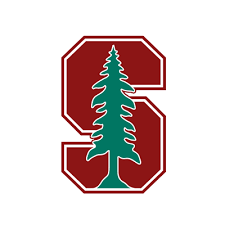

- Acceptance rate: 6%
- Average entry score: 1470-1570 SAT or 34-35 ACT
- Student-to-faculty ratio: 6 to 1
- Estimated cost of attendance (tuition and fees): $124,389-$149,532
- Average earning potential for graduates: $80,900 (College Simply)
Stanford University’s commerce programs, including the renowned Graduate School of Business, offer exceptional education quality through world-class faculty and innovative curricula.
The collaborative learning environment fosters intellectual growth, entrepreneurship, and global perspectives. As a prestigious institution with a strong alumni network,
Stanford consistently ranks among the top business schools worldwide, producing influential leaders across industries and driving a positive impact on the global economy.
Source: Stanford Business
Conclusion
Ultimately, securing a spot at one of the best undergraduate business schools promises a solid foundation for a thriving career in business.
Look beyond mere rankings; consider factors such as location, networking opportunities, and alumni support.
Remember, the ideal school for you should align with your goals and aspirations, empowering you to excel in the competitive world of commerce.
Selection Criteria
Here is a list of the factors we considered when selecting the best commerce schools:
Please note that the order in this list might vary by ranking criteria and sources.
- Reputation and ranking of the school: We looked for schools that have a strong reputation and high ranking in commerce.
- Faculty expertise, qualifications, and specialization: We researched the faculty members and their areas of expertise and qualifications to ensure that the school has professors with relevant expertise and specialization in the areas of commerce that are of interest.
- Curriculum and resources: We evaluated the curriculum to ensure it aligns with students’ interests and career goals and considered the quality of the school’s facilities and resources, such as labs, equipment, and libraries.
- Opportunities for hands-on learning and research: We looked for schools that provide opportunities for hands-on experience through internships, co-op programs, or fieldwork.
- Student support services and alumni network: We considered the availability of support services and the strength of the alumni network in providing mentorship, internships, and job opportunities after graduation.
- Extracurricular activities and diversity: We evaluated the availability of extracurricular activities and clubs that align with students’ interests and considered the school’s diversity and inclusivity.
- Networking and post-graduation support: We researched the school’s network of alumni and their post-graduation support for commerce students and also considered if the schools have a strong network of commerce professionals and researchers.
Frequently Asked Questions
Q1. What is a commerce school?
A commerce school is an institute of higher learning that offers programs in business. The programs offered in these schools are designed to prepare students for careers in the business world.
Q2. How do I know which commerce school is the best?
There are many factors you should consider when choosing a commerce school. A good place to start is by considering which schools are accredited by the Accrediting Council for Independent College and Schools (ACICS).
In addition, you should also look at things like tuition costs, admission standards, graduation rates, and job placement rates.
Q3. How do I get into a good commerce school?
If you want to attend a top-ranked commerce school, you should have good grades and test scores.
Some of the best schools require applicants to have at least a 3.0 GPA or higher on a 4.0 scale, while others require a minimum composite score (including both your SAT Reasoning Test and ACT scores).
Q4. What are the best commerce schools in the United States?
The following is a list of some of the top-ranked business schools in the country:
- Harvard University
- Stanford University
- University of California, Berkeley
- Yale University
- Columbia University
Q5. What are the highest-paying jobs with a commerce degree?
The following is a list of some of the most sought-after career paths for those with a business degree:
- Accountant
- Financial Consultant
- Management Consultant
- Financial Analyst
References
[1] Official Websites
[2] Salary Data from Glassdoor, College Factual, Grad Reports, College Simply, and Zippia, among others
[3] Ranking references, including news media such as 2023 Best General Business/Commerce Schools.


